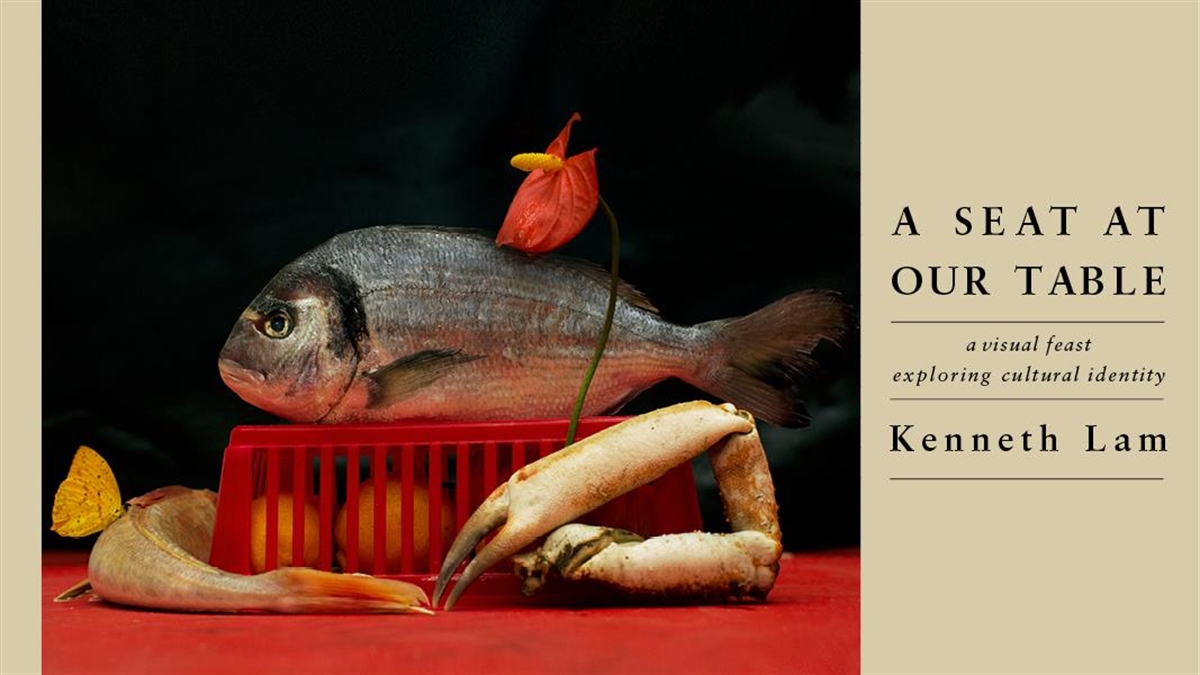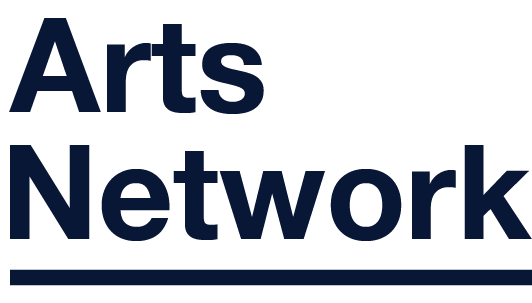Preparing for Interact
As you begin your time together, make sure to welcome newcomers to your group!
Open up the discussion with this starter question:
Can you think of occasions throughout the year that prompt us to share meals with others?
Interact//The Arts

"Through the exhibition, Kenneth has recreated this sense of heritage using the table as a powerful symbol of home – it is somewhere where we connect and reflect, it is a place of celebration and ceremony. Ultimately, it is not bricks and mortar which defines home or who we are as individuals. Our identities are forged from our memories and experiences and reflected in how we craft a place of belonging." [1]
To sit around a table and eat together is a very powerful thing, and the food we choose to share can be just as significant. Food connects us closely with our heritage and cultural identities. In Kenneth Lam's exhibition 'A Seat at Our Table', the artist invited an audience to share and explore the dishes that were significant to them. Lam then photographed this food as a portrait of the individuals - connecting the language of food to an exploration of their cultural heritages and personal stories. Watch this video of Kenneth Lam talking about his work here. (5 mins)
Discuss:
What are your initial reflections on this artwork?
Lam's work shows us that food can hold many memories of home and belonging for people across the world. Why do you think food has this kind of importance?
Often in creative work, the process is just as important as the outcome. Why do you think Lam's process was so important to him in developing this exhibition?
Interact// The Word
Read Exodus 12 v 25-27
25 And when you come to the land that the Lord will give you, as he has promised, you shall keep this service. 26 And when your children say to you, ‘What do you mean by this service?’ 27 you shall say, ‘It is the sacrifice of the Lord's Passover, for he passed over the houses of the people of Israel in Egypt, when he struck the Egyptians but spared our houses.’” And the people bowed their heads and worshiped.
Read Luke 22 v 7-30
7 Now the Festival of Unleavened Bread arrived, when the Passover lamb is sacrificed. 8 Jesus sent Peter and John ahead and said, “Go and prepare the Passover meal, so we can eat it together.”
9 “Where do you want us to prepare it?” they asked him.
10 He replied, “As soon as you enter Jerusalem, a man carrying a pitcher of water will meet you. Follow him. At the house he enters, 11 say to the owner, ‘The Teacher asks: Where is the guest room where I can eat the Passover meal with my disciples?’ 12 He will take you upstairs to a large room that is already set up. That is where you should prepare our meal.” 13 They went off to the city and found everything just as Jesus had said, and they prepared the Passover meal there.
14 When the time came, Jesus and the apostles sat down together at the table.[a] 15 Jesus said, “I have been very eager to eat this Passover meal with you before my suffering begins. 16 For I tell you now that I won’t eat this meal again until its meaning is fulfilled in the Kingdom of God.”
17 Then he took a cup of wine and gave thanks to God for it. Then he said, “Take this and share it among yourselves. 18 For I will not drink wine again until the Kingdom of God has come.”
19 He took some bread and gave thanks to God for it. Then he broke it in pieces and gave it to the disciples, saying, “This is my body, which is given for you. Do this in remembrance of me.”
20 After supper he took another cup of wine and said, “This cup is the new covenant between God and his people—an agreement confirmed with my blood, which is poured out as a sacrifice for you.
21 “But here at this table, sitting among us as a friend, is the man who will betray me. 22 For it has been determined that the Son of Man must die. But what sorrow awaits the one who betrays him.” 23 The disciples began to ask each other which of them would ever do such a thing.
Note for facilitators: To help understand the context of this passage UCCF Impact series 'meals with Jesus' has a helpful primer video you could check out.
A Short Reflection:
There are many times across the year when people meet to gather over food - birthdays, weddings, and anniversaries. This was no different in ancient Israel, where it was customary to meet to celebrate the Passover meal. The Passover meal celebrated God's great rescue of the Israelites out of slavery in Egypt. The Passover meal centred around a lamb dinner - the animal used as a sacrifice in Egypt to secure Israel's safety from God's judgement (Exodus 12). The Passover meal was heavy with symbolic value for the people of Israel, and so it is noteworthy that Jesus chose this time to gather his disciples together for his 'last supper' with them. As he reclines with his friends, Jesus picks up bread and wine from the meal and invests them with a new symbolic meaning.
Breaking the bread he tells his friends 'This is my body, given for you'. The bread symbolises the meal as a whole, but by uttering these words Jesus now associates his own body with the broken body of the lamb. He is the one whose body will be broken for the freedom of his people. He is preparing the disciples for the suffering he is about to face, and declaring to them the significance of his death on the cross. He does the same with the wine. Pouring it and telling his friends that his death will bring in a new covenant - a new shape to the nature of the relationship between God and man. It is no longer the sacrifice in Exodus they are to look to for their hope of restoration with God, but to the sacrifice of Christ.
When we offer a meal to another person, we extend a hand of friendship to them. Offering something of ourselves in the food we choose to cook and share. When we read this passage and look at the life and death of Christ, we see God doing something remarkable. We see God offering us a meal. He extends to us a hand of friendship and hospitality, not in the form of mere bread and wine but in the broken body and poured-out blood of Christ. Our call is to respond and to receive.
Discuss:
Why do you think Jesus chooses the timing of his final meal to correspond with the Passover meal?
What do Jesus' death and the Passover have in common?
Jesus uses this meal as a symbolic marker for what he is about to do on the cross, yet he also instructs them to observe this as an actual meal. Why do you think Jesus leaves his followers a meal to remember him by?
How might we understand Jesus' death as the ultimate act of 'hospitality'?
Interact// Ourselves and Others
Sharing bread and wine (communion/the Lord's Supper) in church is a regular part of the life of a Christian. Just like the Passover meal for the Israelites, communion is a way of remembering that we belong to the body of Christ.
How would you explain communion to someone who has never heard of it before?
Why do we need to be reminded so regularly and actively of what Jesus has done for us?
How might sharing meals play a part in sharing Jesus with our friends?
Wrapping Up
Sharing a meal is a wonderful way to break down barriers and connect with others - is there someone you could invite to a meal with you this week? Perhaps you could use this as an opportunity to tell them about Jesus' ultimate act of hospitality.
Why not take some time to pray about what you have discussed?
Lord Jesus, thank you that your body was broken and your blood poured out for us on the cross. Thank you that as we remember your death on the cross we can know with certainty that you love us and have dealt with our sin. Thank you that because you take the punishment that we deserve for our sins, we are now right with God. Help us never forget what you have done for us, help to live our lives with thankfulness. Give us courage and the right words to tell other people of your sacrifice for us.
Amen.
[1] https://spacestudios.org.uk/events/kenneth-lam-a-seat-at-our-table/

